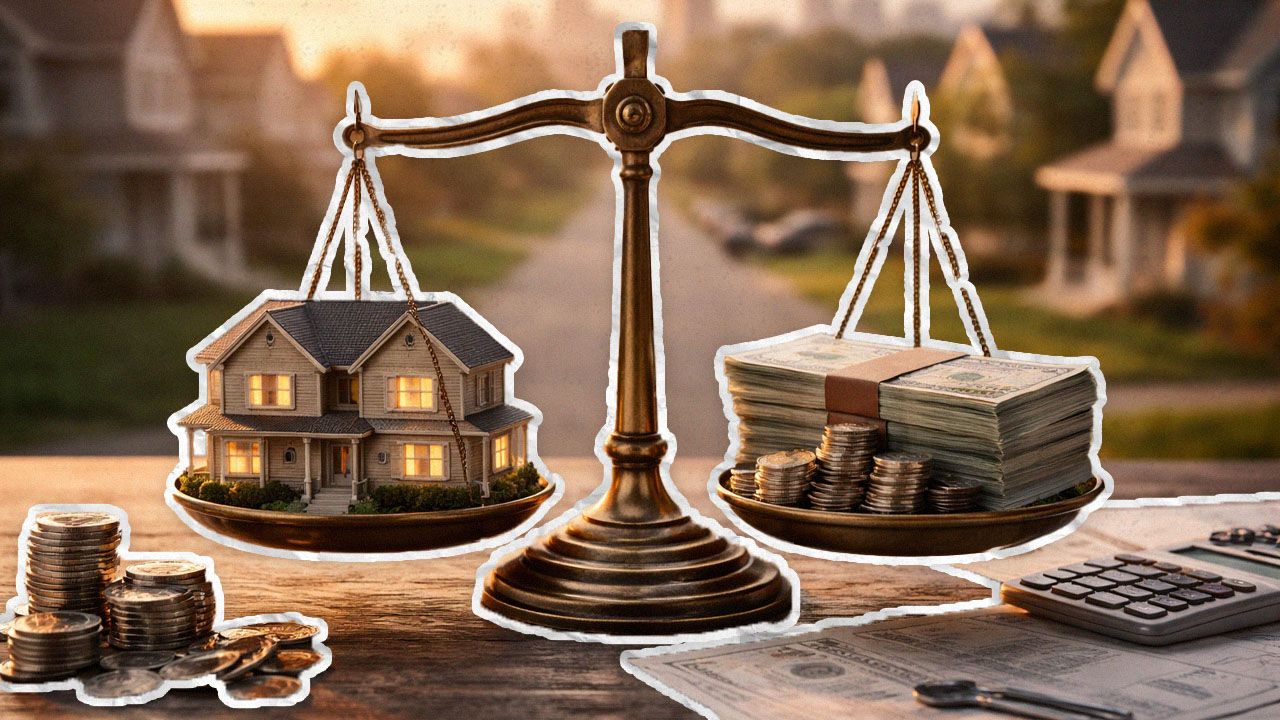Trade Wars Driving Up Your Home Prices!
May 24, 2025
Written by David Dodge
Homeowner, renter, or house hunter! You might think global trade wars are just some far-off political drama, like a storm brewing on the other side of the world, but their effects are hitting your neighborhood in ways you can’t ignore. From skyrocketing costs to build a home to shifts in where people want to live and work, trade wars are shaking up the real estate market right where you live. Whether you’re eyeing a cozy suburban bungalow in Charlotte or a sleek downtown condo in Miami, understanding how these global policies ripple into your local economy can help you make smarter decisions. Let’s dive into this messy but fascinating topic and break it down in a way that’s easy to grasp, so you can see exactly how global chaos is changing the streets you walk every day.
What Are Trade Wars, Anyway?
Trade wars aren’t just headlines—they’re economic battles where countries slap tariffs, or taxes, on each other’s goods to protect their industries, gain leverage, or send a political message. Picture two neighbors arguing over who pays for a new fence, except it’s entire nations bickering over steel, lumber, electronics, or even agricultural products like soybeans. Right now, the U.S. and other major economies are locked in ongoing trade disputes, with tariffs flying back and forth like verbal volleys. These policies create a ripple effect of uncertainty that doesn’t just stay in boardrooms or government offices—it trickles down to your local real estate market, affecting everything from home prices to the vibe of your community. Social media posts on X highlight how these tensions are driving up costs and shifting investor confidence, which means your neighborhood—whether it’s a bustling city like Seattle or a quiet suburb in Texas—is feeling the heat [www.globest.com]. Understanding this big-picture drama is key to seeing why your local housing market might feel like it’s on a rollercoaster.
How Tariffs Jack Up Home Prices
Let’s talk about your wallet and how trade wars are hitting it hard. Tariffs on key construction materials like steel, lumber, and aluminum—stuff every home needs—are driving up the cost of building houses. Recent tariffs have added an estimated $9,200 to the cost of building a single-family home, according to industry reports, a figure that’s turning heads in the real estate world. That’s not just a number; it’s thousands of dollars that builders aren’t absorbing—they’re passing it right on to buyers like you. Imagine trying to buy a new home in a competitive market like Austin, Phoenix, or Miami, where prices are already steep, and now you’re facing this extra cost. Suddenly, that dream home feels like it’s slipping out of reach. This isn’t just about new homes, either. Higher construction costs mean fewer homes get built, tightening the supply in the real estate market. When supply shrinks but demand stays high (because people always need places to live), housing prices shoot up. Renters aren’t off the hook either—landlords often raise rents to cover their own rising costs, so your monthly budget could take a hit whether you’re renting a downtown loft or a suburban apartment. If you’re browsing Zillow or signing a lease, trade wars are making your housing budget a little tighter.
Empty Offices and Changing Neighborhoods
Trade wars aren’t just jacking up home prices; they’re reshaping entire neighborhoods by changing how we use commercial spaces. With global trade tensions creating uncertainty, businesses are rethinking their strategies, and many are cutting back on leasing office space. Combine that with the ongoing remote work trend, and you’ve got office buildings sitting empty across major cities. In New York City, for instance, office vacancy rates are hovering above 20%, according to recent data, a clear sign of changing times [www.axios.com]. This isn’t just a New York problem—it’s happening in urban hubs like Chicago, San Francisco, and even smaller cities like Raleigh. So, what does this mean for your neighborhood? Those vacant office towers could get a second life as apartments, retail spaces, or trendy coworking hubs, transforming downtown areas into something new and vibrant. Meanwhile, suburbs are seeing a boom as remote workers ditch expensive city apartments for more spacious homes with backyards. If you’ve noticed new coffee shops, grocery stores, or even schools popping up in your suburban neighborhood, that’s partly because of this shift. Trade war uncertainty is pushing companies to rethink their real estate needs, which trickles down to reshape the character and economy of your local community—whether it’s adding a new park to your small town or turning your city block into a mixed-use hotspot with cafes and lofts.
Investor Jitters and Your Local Economy
When trade wars heat up, investors get nervous—and that’s bad news for your local economy. Big players in the real estate market, like foreign investors or major development firms, are pulling back because of tariff-related uncertainty. Discussions on X have highlighted how foreign investors, especially from countries hit hard by U.S. tariffs, are hesitating to pour money into American real estate [https://www.globest.com/]. When investors hold off, it means fewer new apartment complexes, shopping centers, or office buildings get built in your area. That can slow down job growth, limit new amenities like restaurants or gyms, and even put a damper on your home’s value if demand drops. For example, if a planned condo tower in your city gets scrapped because investors are spooked, your neighborhood might miss out on the economic boost that comes with new residents and businesses. This can also affect local property taxes, which fund schools and parks, so the impact hits more than just homebuyers. But it’s not all bad—if you’re a buyer in a city like Denver or Atlanta, where trade war effects are curbing investor enthusiasm, you might find less competition for that perfect home. The local economy feels these global shifts, and your neighborhood’s growth, from new retail to rising home values, is directly tied to it.
The Silver Lining: Opportunities in a Shaky Market
Now, let’s look at the bright side—trade wars can create some unexpected opportunities in the real estate market. With construction costs up and investor confidence shaky, demand is cooling in some areas, which can give buyers a rare edge. Sellers who were banking on sky-high offers might now be open to negotiation, especially in markets hit hard by tariff-driven price hikes, like those in high-growth cities. Plus, those empty commercial spaces we mentioned? Cities are getting creative, rezoning them for affordable housing, community centers, or even urban farms, which could make your neighborhood more vibrant. Imagine your downtown gaining new apartments or a cool coworking space because of repurposed office buildings—that’s a win for local charm. Social media chatter on X points to smaller cities and suburbs attracting new residents as urban costs rise, so if you’re in a place like Boise or Asheville, your neighborhood might be the next hot spot [1]. The key is to stay informed and act fast when you spot a deal, because these market shifts won’t last forever. Trade wars might be chaotic, but they’re opening doors for savvy buyers and renters who know where to look and how to navigate the market.
What Can You Do About It?
So, how do you navigate this trade war chaos as a homeowner, renter, or buyer? It’s all about being strategic and staying one step ahead. First, shop smart—focus on markets less impacted by tariff-driven cost spikes. Areas with older homes or less reliance on new construction, like established neighborhoods in smaller cities such as Knoxville or Tucson, might offer better value than brand-new developments. Second, consider suburbs or up-and-coming towns gaining from the remote work boom—places like Charlotte or Colorado Springs are seeing growth as people move away from pricey urban centers. Third, keep an eye on trade policy news. If tariffs ease up, construction costs could stabilize, making it a better time to buy or build. You can follow updates on platforms like X or check reliable news sites to stay in the loop. Finally, talk to local real estate agents—they’ll know how your specific neighborhood is being affected, whether it’s new developments stalling or sellers dropping prices. Also, check zoning changes in your area; cities repurposing commercial spaces could mean new amenities or housing options coming your way, which could boost your property’s value. By staying proactive, you can turn global uncertainty into a local advantage.
Wrapping It Up
Trade wars might feel like a distant problem, something for politicians and CEOs to worry about, but their impact is landing right in your backyard. From pricier homes due to tariff-driven construction costs to empty office buildings reshaping downtowns, global chaos is transforming your neighborhood’s real estate market and local economy. Whether it’s higher housing prices in competitive markets, new suburban hotspots drawing remote workers, or opportunities to snag a deal in a cooling market, these changes affect how you buy, sell, or enjoy your community. By understanding the connection between global trade policies and your local streets, you can make smarter real estate decisions, whether you’re hunting for a bargain or planning to sell. Have you noticed trade war effects in your neighborhood, like new developments, shifting prices, or new businesses popping up? Drop a comment below and let’s chat about how this global mess is hitting home!
References
- https://t.co/YddMdzomOY
- https://www.axios.com/2024/10/25/commercial-real-estate-debt-office-loans
- https://t.co/UVjloveAYX






